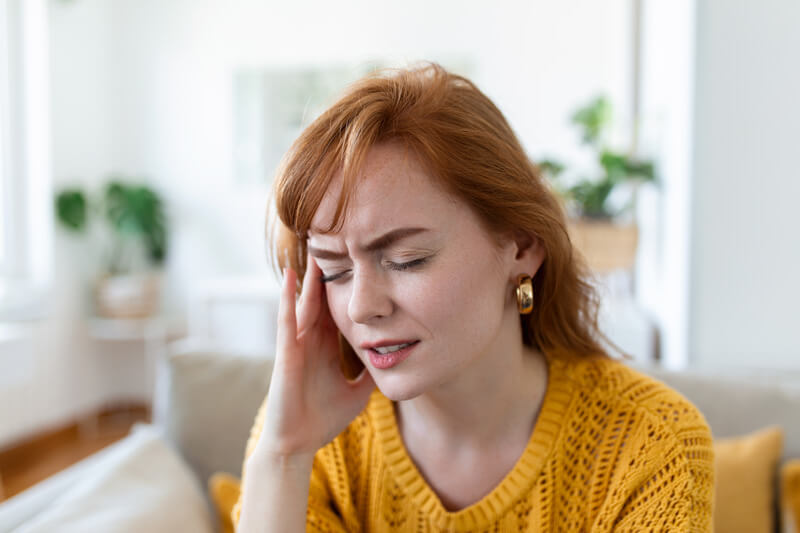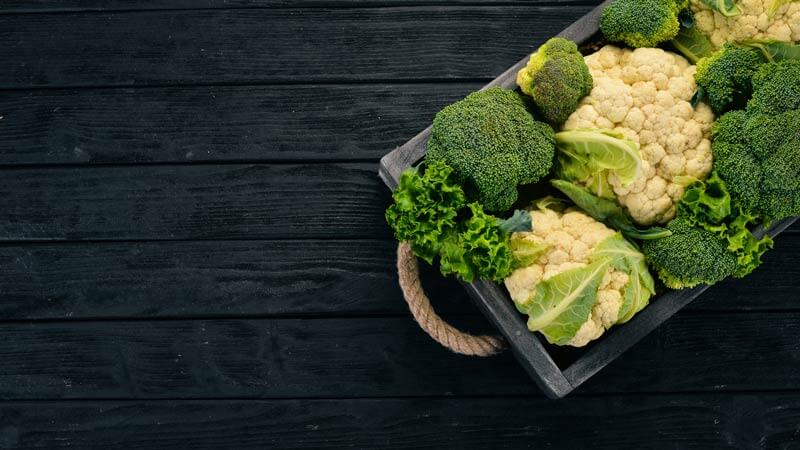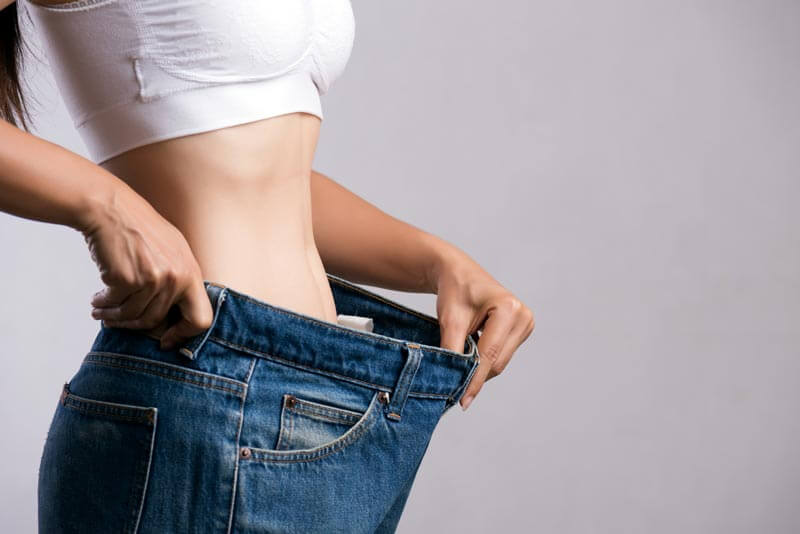A common stimulant, many of us get a daily dose of caffeine one way or another.
Whether you like waking up in the morning with your favorite coffee, or prefer energy drinks and sodas, millions of people use caffeine to make them feel more alert and focused.
However, the jury is still out as to whether caffeine is good or bad for us, with some research suggesting that caffeine may have both benefits and risks, even in moderation.
In this article, we plan to take a closer look at caffeine’s effects on the body, no matter how you’re consuming it.
Quick facts on caffeine
- Caffeine – as a stimulant – can naturally occur in a range of foods
- The Food and Drug Administration (FDA) recommend no more than 400mg of caffeine each day – or 2 to 3 cups of coffee
- Moderate caffeine intake has the potential to aid weight loss, alertness and cognitive function
- Caffeine has potential negative effects, impacting pregnancy, glucose control, fertility and other areas of health
- Caffeine powder can result in a fatal overdose and should be avoided
How caffeine is used
The FDA consider caffeine as both a drug and a good additive, since we can become somewhat addicted to its effects. With a maximum of 400mg recommended each day, many of us consume caffeine in different ways – even through medications.
In over-the-counter drugs, caffeine is commonly used to combat tiredness and feeling drowsy, as well as featuring in pain medication.
It belongs to a group of medicines called central nervous system (CNS) stimulants.
However, plenty of foods contain caffeine, as well energy drinks and sodas. In the US alone, more than 90% of adults use caffeine regularly – crazy, huh?
Where does caffeine come from?
Naturally occurring in more than 60 plant species, caffeine is typically found in:
- Coffee beans
- Dola nuts
- Yerba mate leaf
- Tea leaves and buds
- Cacao beans
- Guarana seeds
Bu why plants? Although we enjoy caffeine in a variety of drinks, it actually acts as a natural pesticide in plants.
What about caffeine in food?
Although caffeine is naturally found in a lot of plants, how do we end up consuming it?
Probably the most common place we seek caffeine is coffee, tea and chocolate, however, it is frequently added to foods such as waffles, marshmallows, gum, jelly beans, syrups and plenty of other snacks.
With a recommended maximum of 400mg per day, this cap hasn’t been associated with negative effects. Of course, when we talk about these daily limits, we’re referring to an adult’s intake. However, the American Academy of Pediatrics (AAP) discourages children and adolescents from consuming caffeine and other stimulants.
Also Read: The best workout for women short on time
When you take a closer look at where caffeine is found, you’ll be pretty surprised how often it naturally occurs or is added to a range of food and drink.
Here are some average caffeine quantities found in common food and drinks:
- 95 to 200mg in one 8-ounce cup of coffee
- 35 to 45 mg in one 12-ounce can of cola
- 70 to 150mg in one 8-ounce energy drink
- 14 to 60mg in one 8-ounce cup of tea
While opting for decaffeinated soft drinks and cola will help you avoid caffeine altogether, decaf coffee isn’t entirely caffeine-free. Meanwhile, energy drinks can vary greatly in terms of their caffeine content.
Want to lose weight?
Achieve your body goals faster with 24/7 fat burning fuelled by nature
The benefits of caffeine
But is caffeine as bad as it’s made out to be? Here are some potential health benefits of caffeine. However, don’t get too carried away, as not all of these have been backup with research just yet.
Caffeine and weight loss
For some time now, we’ve been hearing about how caffeine could potentially boost weight loss, or prevent weight gain.
But how?
Caffeine has been known to suppress our appetites, curbing the urge to snack temporarily, with many of us opting for another coffee over cramming in cookies and cakes.
But that’s not all, as caffeine has the potential to stimulate thermogenesis, kickstarting the body’s potential to generate more heat and energy from digesting food.
The chances are, you’ve seen the term ‘thermogenic’ before, with many weight loss products containing caffeine, ephedra or ephedrine.
Increased focus and alertness
You know how it goes, when you’re feeling tired and sluggish, a delicious hot coffee first thing helps to wake you up!
According to research, a 75mg serving of caffeine can boost your attention and alertness, with an even higher dose of 160 to 600mg improving mental alertness, memory and even speed reasoning.
However, don’t be tempted into glugging coffee and other caffeinated drinks to avoid heading to sleep! Or, if you’re struggling to rest at night, it could be due to your caffeine intake.
Enhances sport performance
During endurance exercise, caffeine has been shown to improve physical performance.
This is why caffeine is commonly found in sports drinks and sold in gym vending machines, giving you an extra kick pre-workout.
Brain function and caffeine
Caffeine can have some interesting effects on our mind and body. Caffeine affects adenosine receptors in the brain, with coffee containing polyphenol antioxidants which also act on various pathways.
According to research, consuming coffee may enhance thinking skills, slowing down the effects of mental decline as we get older.
Memory, Alzheimer’s and Parkinson’s disease
While going overboard with your caffeine intake will most certainly not benefit your body, some research has shown that lifelong caffeine consumption has the potential to reduce the risk of Alzheimer’s disease.
Alongside this, studies have shown that higher coffee intake may reduce your risk of Parkinson’s disease.
But it doesn’t end there, as research carried out by Johns Hopkins University has revealed that a dose of caffeine post-learning session may boost long-term memory.
Skin cancer
While applying caffeine directly to your skin may not be your first thought, researchers have suggested in a study of mice, applying caffeine to their skin helped protect them from ultraviolet (UV) light from causing skin cancer.
Type 2 diabetes
While the percentages are pretty small, one study has shown that drinking more than one cup of coffee a day (studied over a four year period) resulted in a 1% lower risk of developing type 2 diabetes.
We told you it was small…
Other health benefits of caffeine
How else could caffeine potentially benefit your body?
- Reduced risk of stroke, according to research – women drinking more than one cup of coffee daily had a 22 to 25% lower risk of a stroke
- Mouth throat and other cancers – During studies, participants drinking more than four cups of coffee daily had a 49% lower risk of dying from oral cancer
- Reduce risk of developing kidney stones – In a study of 217,883 participants, those that consumed more caffeine
- Eye protection – Some research has suggested that caffeine may help to protect the lens of the eye against cataracts
- Protection from eye spasm – While there is room for further research, some evidence suggests that caffeine may help protect people from the eye disorder blepharospasm
Risks associated with caffeine
While some research suggests that caffeine can have a positive impact (in moderation), of course, there are some risks to consider.
Depression and anxiety
If you suffer from anxiety or depression, high levels of caffeine may exacerbate your symptoms.
Some research has shown that a high caffeine intake has been associated with high weight, lower academic success and a higher risk of depression.
However, research is unclear in regards to caffeine causing depression, or depression resulting in higher caffeine consumption.
Blood sugar levels
Those with type 2 diabetes have reported a rise in blood glucose levels after consuming caffeine.
With some evidence suggesting that caffeine may impair insulin action. This results in a small (but detectable) rise in blood sugar levels, especially after eating a meal.
Pregnancy and fertility
Many women avoid caffeine during pregnancy, and for good reason. Studies have shown the scary effects caffeine may have during pregnancy:
- Delayed fetal growth
- Pregnancy loss
- Abnormal fetal heart rhythm
If you’re trying to get pregnant, the weeks before pregnancy also matter, according to the National Institutes of Health (NIH). Further research has also shown that if both parents drink 2+ caffeinated drinks daily in these pre-pregnancy weeks, the risk of loss of pregnancy may be higher.
As well as during pregnancy, research has shown that caffeine may reduce muscle activity in the fallopian tubes, affecting your chances of falling pregnant.
Want to lose weight?
Achieve your body goals faster with 24/7 fat burning fuelled by nature
Incontinence, menopause and headaches
Surprisingly, a study of female participants showed that an intake of 329mg of caffeine daily had a 70% higher chance of having bladder issues.
Meanwhile, one study has shown that women consuming caffeine during the menopause were more likely to have hot flashes and sweats at night.
As well as this, caffeine has been shown to potentially trigger chronic daily headaches.
Insomnia
This should come as no surprise really, since many of us consume caffeine to stay awake!
However, according to research, consuming caffeine even 3 to 6 hours before heading to bed can disturb your sleep. Try switch to decaf later in the day, or cut out caffeine altogether.
Other potential side effects
While caffeine can help you in feeling more alert and focused, too much caffeine can have adverse effects:
- Feeling dizzy
- Jitters
- Nervousness
- Dependency
- Heartburn
- Upset stomach
- Nausea
- Fast or irregular heartbeat
Drugs and caffeine
While some medications may include a small amount of caffeine, some drugs can interact with caffeine, including:
- Antibiotics
- Antipsychotics
- Some antidepressants
- Bronchodilators
- Carbamazepine
As well as some herbs and supplements:
- Calcium
- Echinacea
- Melatonin
- Magnesium
- Red clover
- Ephedra
- Kudzu
Popular caffeine myths
Is caffeine addictive?
While caffeine isn’t necessarily addictive in the same sense as illegal drugs, it is possible to have withdrawal symptoms if you stop consuming caffeine.
According to the American Psychiatric Association (APA), caffeine withdrawal has been added to the list of recognized conditions in the Diagnostic and Statistical Manual of Mental Disorders (DSM-V).
However, not everyone will feel withdrawal symptoms from caffeine. Those that abruptly stop drinking coffee could experience these types of symptoms for around 12 to 24 hours post-quitting.
Is caffeine considered a diuretic?
Many coffee drinkers claim that caffeine has the potential to increase urinary volume and frequency. This then causes the body to lose water and electrolytes, such as sodium and potassium.
However, there is no research to back up claims of significant fluid loss between coffee drinkers and those who don’t drink it.
If you were to drink more than 250mg each day, you may notice additional water loss – although in this case, the fluid (from the coffee) would make up for any loss.
Can caffeine sober you up?
After having too much to drink (alcohol), many turn to coffee or other drinks packed with caffeine – such as energy drinks – in order to ‘sober’ them up.
While the caffeine may make you feel more alert, fighting against the grogginess of a hangover, it will not legally sober you up enough to drive for example.
This could actually be more dangerous than you first think, since feeling alert may make you feel sober, when your body isn’t.
Can coffee cause osteoporosis?
Consuming a lot of caffeine may have an effect on the way your body absorbs calcium. With this in mind, some are concerned that drinking coffee (or other caffeinated drinks) could lead to osteoporosis.
Yet again, this hasn’t been backed up with thorough research!
Caffeine, energy drinks and alcohol
For a long time now, there has been a lot of controversy regarding energy drinks. In an education setting, many have banned such drinks due to health issues and even fatalities.
There is no one-size-fits-all amount of caffeine across energy drinks since they vary greatly across brands and types.
To put things into perspective: One 16-ounce Americano coffee contains on average 225mg of caffeine. In the same sized energy drink, it can range from 160mg to 357mg.
On a number of energy drinks, you will find health warnings, regarding heart problems and intolerance to caffeine. But as well as potentially giving you the jitters, energy drinks also contain other stimulants, artificial sweeteners, additives and simple sugars.
Alongside this, when mixing an alcoholic beverage with an energy drink, caffeine can somewhat mask the depressant effects of alcohol. While alcohol can also decrease the metabolism of caffeine, prolonging its effects.
Can you overdose from caffeine?
It’s pretty unlikely that you’ll die as a result of consuming too much caffeine in your diet. It has been estimated that to kill an average adult male, it would 149+ cans of caffeinated energy drink.
However, it would be unlikely you’d even make it through the first 20 or so without vomiting first.
Nevertheless, in pure form, caffeine can be a powerful stimulant. A single teaspoon of pure caffeine equates to around 28 cups of coffee. High doses of caffeine can have the following effects on your body:
- Heart palpitations and fast heartbeat
- Anxiety
- Nausea and vomiting
- Sweating
- Cardiac arrest
Conclusion
And there we have it, ladies! In moderation, caffeine has been shown to boost your metabolism and kickstart fat burn.
However, don’t go glugging energy drinks, since these are packed with far too much sugar and other unhealthy additives.
It comes as no surprise that we feature caffeine in our 100% natural fat burner. Caffeine promotes fat burning by increasing thermogenesis (calorie burning) and lipolysis (the breakdown of fat), so you can smash your goals in no time.
At optimal amounts, caffeine can benefit your body, but don’t go overboard!

























